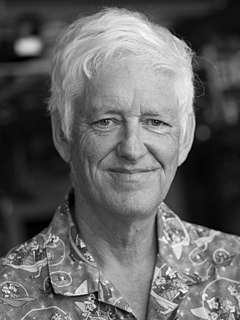A Quote by Peter Norvig
How can you make informed decisions ... ? The key seems to be to gather experts who are knowledgeable and passionate about the subject matter, and have them cooperatively discuss a series of questions designed to explore the limits of technical feasibility.
They must strive to reach the best decision rather than to persuade each other.
Related Quotes
There is usually a clock in our heads regarding decisions we make and the course of our lives. Sometimes this clock is helpful in that it get us to move rather than put off key actions. Other times, it creates us false sense of urgency that can cause us to overreact, lost patience and make poor decisions. In raising this issue in my book, I want people to be aware of the clock in their heads and question whether that clock is helping or hindering the quality of each particular decision.
See, that's the thing about second chances. It's two people that are there for each other and support each other and care about each other no matter how much they want to deny it. It's about one person doing everything they can to make sure the other doesn't fall and vice-versa. Second chances are about holding on to that other persons hand no matter how hard they beg to let go.
The requirement upon the sovereign to 'advise, encourage, and warn' means that the Queen must be well informed. The weekly audience with the Prime Minister is not to discuss the weather but to talk about the most pressing problems facing the nation. An ill-informed monarch cannot do that and would fail in a key constitutional task.
We are great mysteries. No matter what we imagine we may know, even for all the facts we might gather, we don't know each other. Never do, probably never will. Our reputations depend on the opinions of the ill informed. We all have better moments than anybody ever knows, and so do all the others. We are, each one of us, books that are read by critics who only glanced at the chapter headings and the jacket flap. Each one of us is a secret, and on that basis we ought to treat each other with the deepest respect.
Some make light of decisions, arguing that all possible decisions will occur. In such a world, how could one be responsible for his actions? Others hold that each decision must be considered and committed to, that without commitment there is chaos. Such people are content to live in contradictory worlds, so long as they know the reason for each.
The application of psychoanalysis to sociology must definitely guard against the mistake of wanting to give psychoanalytic answers where economic, technical, or political facts provide the real and sufficient explanation of sociological questions. On the other hand, the psychoanalyst must emphasize that the subject of sociology, society, in reality consists of individuals, and that it is these human beings, rather than abstract society as such, whose actions, thoughts, and feelings are the object of sociological research.
There are times where I'd say the Oval Office, you use to gather the facts. The decisions you probably make late at night, or at least I do. But there are some times where you think you've made a decision, but during that walk, where you're announcing the decision, you've just got to make sure that, you're prepared to live with it, because as you know George, a lot of these decisions are not - the outcomes are uncertain.
I'm a very good decision maker because I have core set of principles and so I can make decisions. Decisions can be very hard and you have to wrestle with them, but I'm able to get all the data on the table and figure out what would be the best decision because decisions mean ill for some people and mean positives for others.
My only advice as an experience older singer is about singing, it isn't about music. To have a career in music is a completely different question and leads to other kinds of advice and other kind of experts. All you can do is someone planted in my mind very early on, this wonderful truism called, "Fortune favors the prepared mind." Be passionate about being a musician. There is no limit to how hard you must work and how detailed you must be in every facet of what you do, either as a singer, as a musician, or as a person.





































